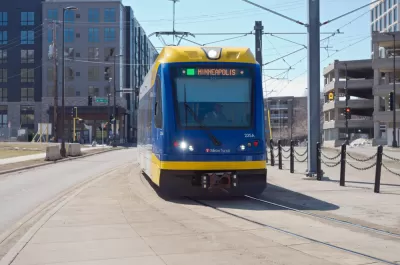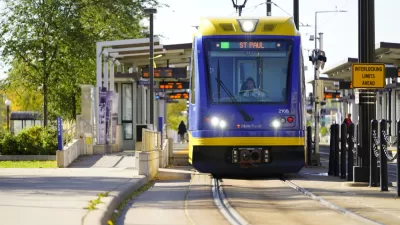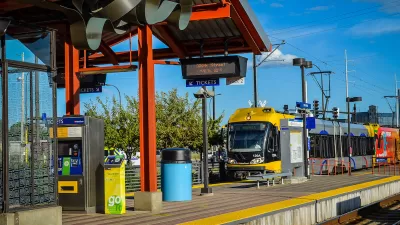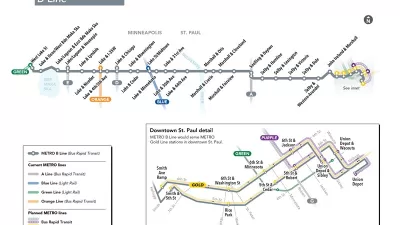With peak hour commuter travel not expected to rebound to pre-pandemic levels, Metro Transit is getting creative in its efforts to attract new riders.

With commute patterns shifting drastically due to the rise in remote work over the last year and a half, public transit agencies across the country must reorganize their services to serve new needs. In the Twin Cities, the need to shift away from focusing on peak-hour service has provided Metro Transit with an opportunity to adjust their services to attract new riders. Bill Lindeke reports on the three new programs that the agency hopes will revive their ridership and encourage more people to use transit for different purposes.
During September and October, Metro Transit has lowered fares to $1 for everyone. The agency hopes this temporary program will "make an impression, to keep these riders going forward" and showcase the effectiveness and safety of the transit system. Metro is also, "for the first time, granting transit passes to specific apartment buildings," granting passes to 20 new multi-family buildings with the goal of reducing the need for private cars. This comes as the Twin Cities have both eliminated minimum parking requirements.
Lastly, Metro buses are now busing St. Paul public school students from four local high schools. "The new busing program is a short-term, emergency stop-gap triggered by a shortage of bus drivers at the district. Forced into triage mode, it marks a big change for thousands of city students." According to Jackie Turner, Chief Operations Officer for the school district, "a side benefit is that the students will get passes that work every day and on weekends (though they are time-limited to respect curfew ordinances). A new generation of students will be used to the liberty that a transit pass provides."
FULL STORY: Without commuters, Metro Transit gets creative about getting riders on board

Study: Maui’s Plan to Convert Vacation Rentals to Long-Term Housing Could Cause Nearly $1 Billion Economic Loss
The plan would reduce visitor accommodation by 25,% resulting in 1,900 jobs lost.

North Texas Transit Leaders Tout Benefits of TOD for Growing Region
At a summit focused on transit-oriented development, policymakers discussed how North Texas’ expanded light rail system can serve as a tool for economic growth.

Alabama: Trump Terminates Settlements for Black Communities Harmed By Raw Sewage
Trump deemed the landmark civil rights agreement “illegal DEI and environmental justice policy.”

How Community Science Connects People, Parks, and Biodiversity
Community science engages people of all backgrounds in documenting local biodiversity, strengthening connections to nature, and contributing to global efforts like the City Nature Challenge to build a more inclusive and resilient future.

Alabama: Trump Terminates Settlements for Black Communities Harmed By Raw Sewage
Trump deemed the landmark civil rights agreement “illegal DEI and environmental justice policy.”

Dear Tesla Driver: “It’s not You, It’s Him.”
Amidst a booming bumper sticker industry, one writer offers solace to those asking, “Does this car make me look fascist?”
Urban Design for Planners 1: Software Tools
This six-course series explores essential urban design concepts using open source software and equips planners with the tools they need to participate fully in the urban design process.
Planning for Universal Design
Learn the tools for implementing Universal Design in planning regulations.
City of Santa Clarita
Ascent Environmental
Institute for Housing and Urban Development Studies (IHS)
City of Grandview
Harvard GSD Executive Education
Toledo-Lucas County Plan Commissions
Salt Lake City
NYU Wagner Graduate School of Public Service





























